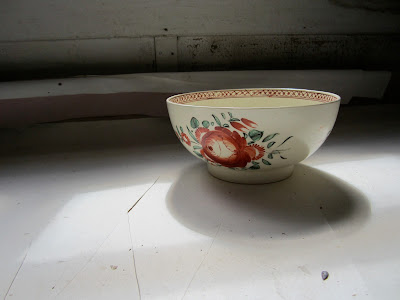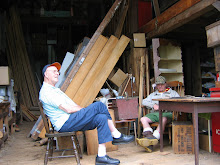Summer Place
Part Twelve - C
IF…
Captain Merritt Kimball is a privateer and marries Sophia Armstrong. IF… Compass Parker and his wife Sophia
are getting ‘too old’ to ‘live on the boat’. IF… John Armstrong and HIS Sophia prefer to remain hunkered
down below the crest of the coast line in their wrecker’s cove… what happens
next? The Revolution is over. The war with England is over? There is ‘free trade and sailor’s rights’? Hardly.
On
the coast of Maine, the religion of trade in little kegs of rum, wrecker’s
plunder and… British trade goods… remained, without prominent notice AND with
popular support… ‘unaffected’. The
slight difference in tempo is that rum became more easily procured and… British
trade goods trading was a no-no.
On paper. In fact, the
messy fingered coast of Maine with the English provinces at their northeastern
end became an irresistible shopping destination for …small boats owned by small
Maine sea captains. Simply sail
north as far as one dares in the daylight, wait for dark, ‘slip across’,
purchase a cargo of …recently landed fresh from England British trade goods…,
load the cargo as fast as one can and… ‘slip across’ as soon as it’s dark. THEN sail south along the coast in a
very lowest profile poise with telescope at the horizon and …the canvas bag of
national flags at the ready and… keep moving at a concealed steady rate… until
one… ‘is home’.
Home
for Captain Merritt Kimball and his young wife Sophia was in a ‘home’ built in a
small coastal Maine village. It
was a modest cape style home, thirty by twenty-six feet with a barn, attached
sheds and… across the River Road and ‘down to the river’, a dock to ‘in the
river’. The river was actually a
‘tidal’, salt water and direct from the sea… ‘river’. A captain on his boat could dock at his ‘is home’ ‘on the
river’ directly from his ‘sailing along the coast of Maine’. With his cargo. Of British trade goods.
At
the dock, this cargo was ‘traded’ to men with wagons who ‘drove away’ and
…peddled these British trade goods.
These men peddled these popular trade goods up and down the expanding
ever inward into the forested interior of New England… regions …that even
included places like Troy, New York* and
‘further west’. With quick turn
over and quick turn around it is no wonder and… no surprise that by a scant
twenty years reaching just past the …trade blockades… of the blurry trade
embargos of the ‘War of 1812’ Captain Merritt Kimball ‘made his fortune’.
The
‘Captain Merritt Kimball’ ‘fortune’ peaked in the Captain’s lifetime.
When
my grandmother stopped “at the crest top of the driveway before the front door”
(Part Two) of the Captain Merritt Kimball estate in 1962; when she, from that
vantage, surveyed the property with the old barns, old docks, old building and,
at crest top above ‘the river road’, ‘the main house’, she saw the exact same
configuration, but one hundred and fifty years older, that Captain Merritt
Kimball saw… the day he died. HE
‘made this’; the Captain Merritt Kimball estate and …it had never been altered…
until the summer of 1962 when the Kimball family sold the property to ‘summer
people’ and it became a ‘summer place’.
Did the Captain make a
fortune? No. It was more modest; he made ‘good
trade’. And died. AND THAT TRADE DIED TOO. Before the Captain died. The market for smuggled British trade
goods… dried up… leaving only the HEIRS of Captain Merritt Kimball and his
wife, Sophia… in ‘the Captain Merritt Kimball house’ as ‘prominent’ ‘citizens’
‘of the village’ …forever. My
grandmother knew this, understood this and… cared about this. That is why she came that day to “buy
Sophia’s chest”. She did
that. SHE knew… and only she knew
(?)… that Captain Kimball had that chest made for Sophia… by a local maker in
the village… BEFORE the big house was built and while the couple lived in the
small ‘first house’ (1790’s).
What else did my grandmother
know? She knew that… at this same
date, Compass Parker and his wife, Sophia… came to live with Captain Kimball
and their granddaughter Sophia… in that first house. She knew that they lived there… in that first house… AFTER
Captain Merritt Kimball built ‘the main house’. Compass and Sophia lived in ‘the old house’ until ‘they
died’.
She knew that… Compass and Captain
Kimball “got on famously” together.
This is because they shared a very common interest of inexhaustible
unwritten verbal discussion of …sailing along the coast of Maine… ‘with
cargo’. Today, summer people in
their summer places have this same inexhaustible unwritten verbal discussion…
sans ‘with cargo’… in their ‘summer places’. That discussion, by ‘summer people’, is where ‘boat trash’
expressions from ‘locals’ come from.
That is because the local perspective is that ‘summer people’s’ sailings
“are not real” like Compass and the Captain’s sailing “was”. Their sailing was real. Was romantic. IS romantic.
That is why they have ‘windjammer days’ and similar ilk ‘every
summer’. But to the locals… such
as myself… who has been the “schooled me in the very subtle trademark
traditions of this whole… Maine… romance”, these ‘stuff’ ‘aren’t real’.
What is real? What is real is when… in 1962: My grandmother, with Rufus and his
older brother Merritt… were together in ‘the old kitchen’ of the ‘first house’
and in “a cupboard by the fireplace” my grandmother “found” (spied and
purloined for fifty cents) Compass Parker’s …18th century King’s
rose painted creamware punch bowl… the bowl that he drank his various ‘punches’
from… all his life… aboard his little boat filled with rum in little kegs… AND
with Captain Merritt Kimball when they ‘of evening’, chatted long about the
‘inexhaustible unwritten verbal discussion’ they shared ‘at home’. She knew when she saw that bowl in that
cupboard the it was… “Compass’ bowl”.
My grandmother was ‘in there’ that
day… and… would be ‘in there’ in days again even to the point of being left
alone …to roam… the whole estate.
She was “looking for Sophia’s desk”. She was looking for “anything John Armstrong”. She was especially looking for
“Compass”. She was looking for his
ghost. When she found the bowl…
she found his ghost… and she knew it.
She poured hot rum into the hot cream she had in the bowl and raised
that bowl to her lips… and drank from the bowl’s edge… while I… at eight years
old… watched… her… “show you”.



No comments:
Post a Comment